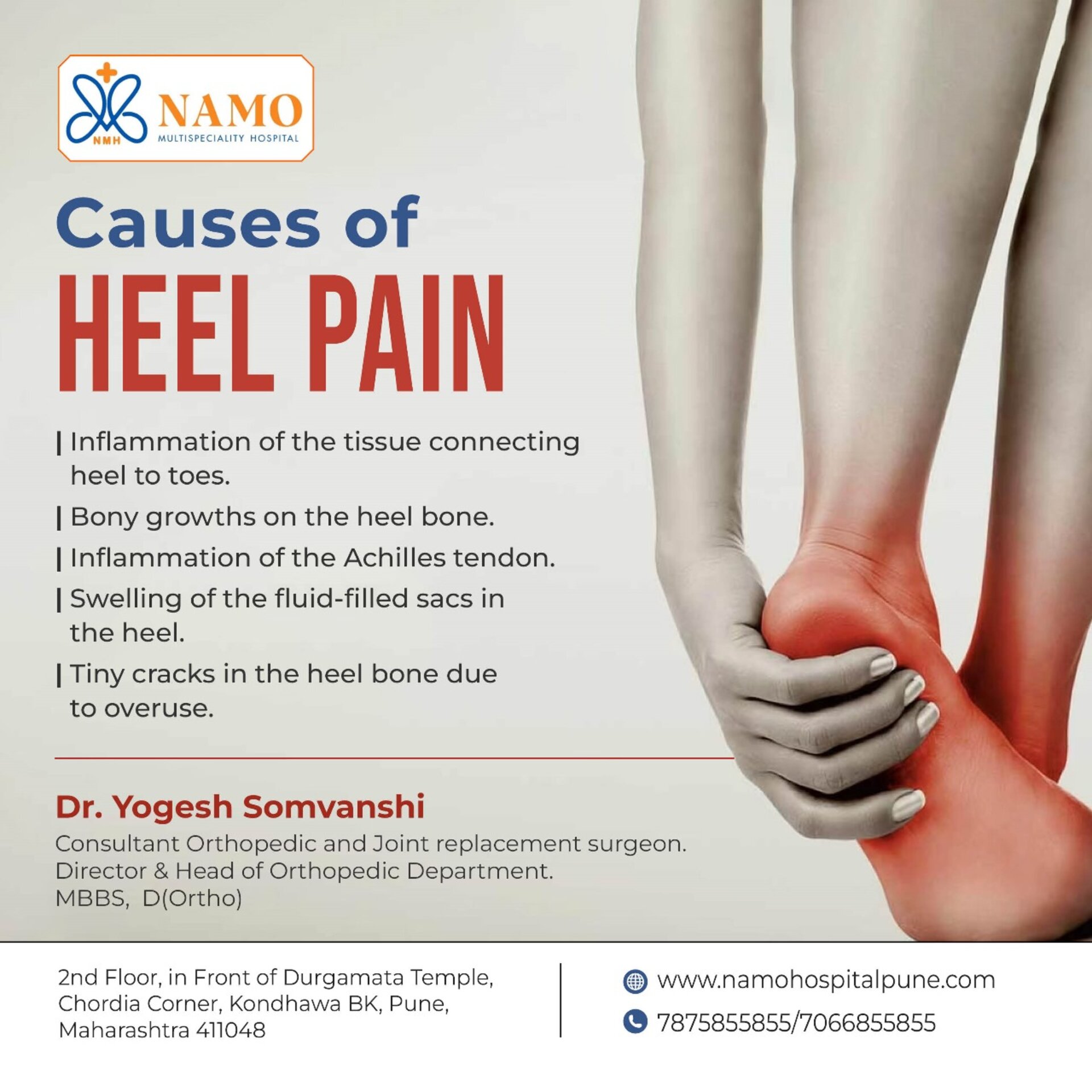Heel pain can be debilitating and often impacts daily activities. At Namo Multispecialty Hospital in Kondhwa, Pune, our team of experts provides advanced care and personalized treatment options to alleviate heel pain. Here are common causes of heel pain:

Inflammation of the tissue connecting the heel to the toes, known as the plantar fascia, is a common cause of heel pain. This condition often results in sharp pain, especially with the first steps in the morning.
Bony growths on the heel bone, known as heel spurs, can cause discomfort, particularly during physical activities. These growths develop over time due to strain on foot muscles and ligaments.
Inflammation of the Achilles tendon, which connects the calf muscles to the heel, can lead to heel pain. It often results from overuse or stress on the tendon, particularly in athletes or those who engage in intense physical activities.
Swelling of the fluid-filled sacs, or bursae, in the heel area can cause pain. Bursitis is often caused by repetitive motion or pressure on the heel and may be accompanied by swelling and tenderness.
Tiny cracks in the heel bone, known as stress fractures, can occur due to overuse, particularly in high-impact sports or activities. These fractures can cause persistent pain and require rest and appropriate medical care to heal.
At Namo Multispecialty Hospital, we specialize in diagnosing and treating various causes of heel pain to help you regain mobility and comfort. For expert care and effective relief from heel pain, visit us today!
Read More-
What is Hypertension? - Namo Multispecialty Hospital
What is Carpal Tunnel Syndrome? - Namo Multispecialty Hospital